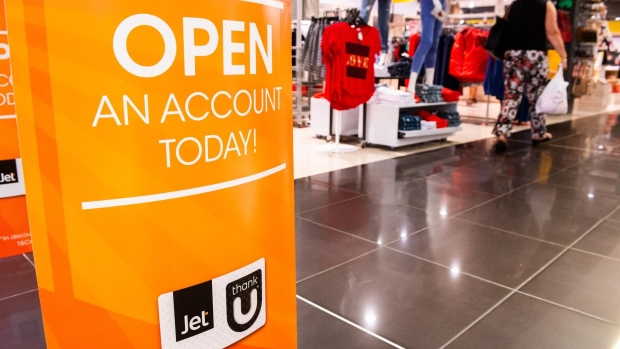Jun 9, 2023
Turnaround Success Helps South Africa Jet Brand Win Market Share
, Bloomberg News

(Bloomberg) -- The Foschini Group Ltd.’s turnaround of South African discount clothing chain Jet is grabbing the attention of a larger rival as competition for the lower end of the market intensifies.
TFG, which acquired Jet three years ago, has refurbished the stores, revitalized the chain’s supply base and added its home-furnishing brand — Jet Home — to 78 of the almost 464 outlets across the country. Jet’s former owner, Edcon Holdings Ltd., was teetering on bankruptcy and didn’t spend on expansion, said TFG Chief Executive Officer Anthony Thunström.
“It was starved for close to 10 years, so they weren’t great shopping experiences,” Thunström said in an interview at the company’s head office in Cape Town’s industrial area of Parow. “There was almost no intact supply base. As people didn’t get paid, they stopped supplying.”
South Africa’s energy crisis and accelerating food inflation is prompting consumers to shop at discount stores. Rising demand may help the retailer more than double TFG’s revenue from the so-called value segment, which also include brands such as Exact, RFO and The Fix to 20 billion rand ($1 billion) in the next five years, according to Thunström.
Still, South African consumer price inflation is hovering around 7% and while the value segment typically holds up quite well under these circumstances it can be a fine balance at times, where the lower-end customer has to choose between purchasing a new garment or scaling back on their basket of groceries.
“Trading down is generally happening, but I think that is overlaid by your value consumers probably being hurt the most by all the cost-of-living increases,” Thunström said. “If you look at South Africa as a whole, the unfortunate reality as you go back the last five years and as you play it forward the next five years, you’ve got negative per capita GDP growth.”
TFG earlier Friday reported earnings for the year through March that pointed to “dampened” consumer demand, with increased pressures and frequent power cuts that often leave malls in the dark, deterring shoppers. The company declared a 1.50 rand final dividend per share, 55% lower than a year earlier. That’s because of the tough consumer outlook and follows investments in its new distribution center, improving manufacturing capacity and launching a new online platform.
Even so, Jet’s turnaround success has caught the attention of Pieter Erasmus, chief executive officer of Pepkor Holdings Ltd., South Africa’s largest clothing retailer. Last month, Erasmus said he is watching Jet closely as better access to funds has helped it take market share.
Jet’s decline under the private equity-owned Edcon allowed Pepkor to grab a bigger slice of the market. It also left room for newcomers such as Pick n Pay Stores Ltd.’s standalone clothing outlets. Even Shoprite Holdings Ltd., Africa’s largest grocer, has recently opened specialist clothing and baby stores.
TFG, which has been highly acquisitive in the last five years with purchases ranging from furniture and bedding makers to branded footwear, doesn’t need to open many more Jet stores at this stage, Thunström said.
Instead, it will continue to put time and money into modernizing Jet’s shop fronts — something the CEO said will cost about 250 million rand, compared with the more than 3 billion rand that was estimated around the time of purchase. TFG plans to revamp 65 more Jet stores this year.
“Where we’ve spent a little bit of money on revamping stores, the results have been almost instant,” he said.
The retailer’s shares rallied by 9% by 12:18 p.m. in Johannesburg, the most in more than a year and reversing their initial declines after Friday’s earnings announcement. The stock is rising for an eighth day, the longest winning streak since August 2022.
--With assistance from Amogelang Mbatha.
(Updates with dividend in seventh paragraph, updates share move.)
©2023 Bloomberg L.P.





